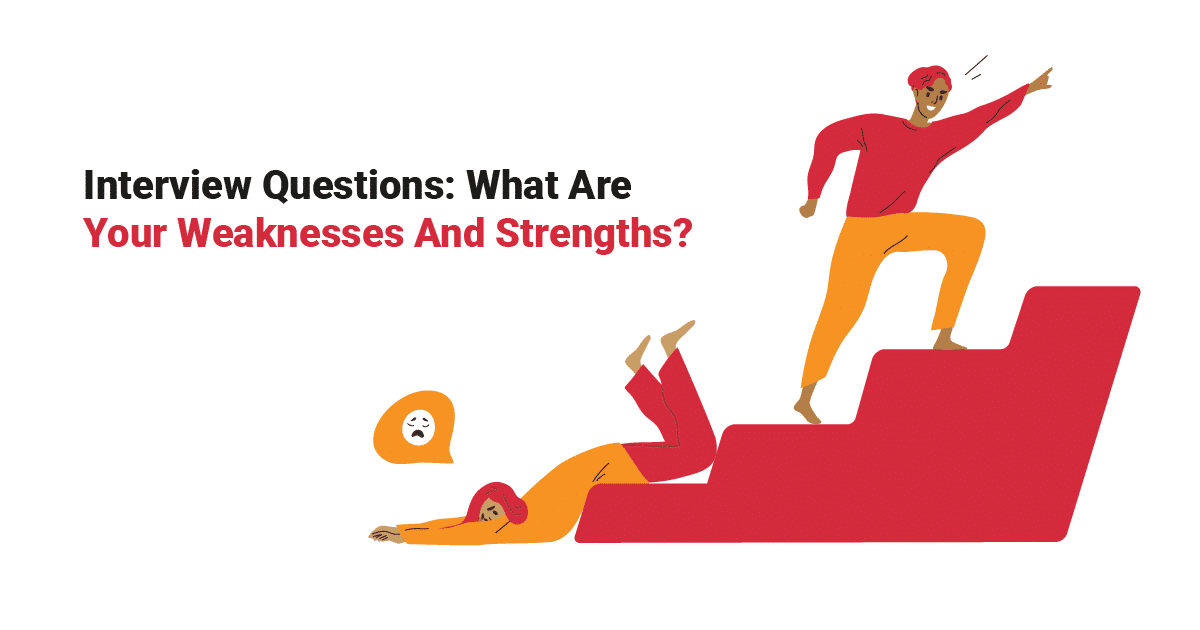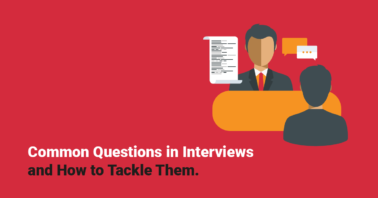How To Answer This Common Interview Question.
Quite often, interviewers will pose this question, “what are your weaknesses and strengths?” during an interview. While it may be very easy to describe one’s strengths, describing one’s weaknesses does not come easy for anyone.
Knowing exactly what a recruiter is looking for when they ask this question not only gives you the confidence to answer it but also helps you calm down when it comes to the much-dreaded bit of having to describe those weaknesses that could cost you your dream job.
When interviewers pose this question, they are are trying to find out more about your personality, who you really are and more importantly your level of self-awareness. Saying you do not have any weakness may seem the right thing to say, but on the contrary, it presents you as a dishonest person because the reality is everyone has a weakness.
In case you are faced with such a question. It is always advisable to address your weaknesses first before you go ahead and praise yourself through your strengths. This factor, enables you to complete this question on a more positive note that the recruiter is more likely to remember.
Since you know that honesty is key when talking about weaknesses; the hurdle would be how to go about defining the weaknesses in a way that paints you in a positive light.
The recruiter does not by any chance expect you to describe your worst habit about you being a perpetual latecomer or often not meeting your deadlines on time. They also don’t expect you forge an answer or give one that still puts you in a positive light such as ‘I always report to work too early or I love my job too much’. This is still you being dishonest and remember one of the things being tested here is your honesty and self-awareness.
Let your answer be real yet not completely put you in the negative light in relation to the job you are applying for. It is always best practice to make it somewhat relevant to the job you are applying for.
The answer you give should not be one of those bad habits you cannot get rid of quite easily. Ensure it is something that you are able to overcome. Letting the recruiter know about this weakness and going an extra mile to describe the measures you are taking to overcome it gives the interviewer an even more positive impression about you as someone willing to learn and change.
Determining what exact weaknesses to spell out to an interviewing panel can be another challenge. So how do you do this? Begin by thinking of any constructive criticism from your work colleagues, friends and family about areas needed to improve on. Be sure to make it relevant to the job you are interviewing for.
Having identified these traits, go ahead and think about the times these traits affected your work. Identifying these times helps you show that you are well informed of these traits and therefore are in a better position to work on them.
Your ability to pinpoint your areas of weakness while showing that you possess the initiative to improve them and have actual ways you are improving will present you in a very positive light.
Click here to get some more examples of some weaknesses you can customize to yourself.
Now that we have got the much-dreaded question about weaknesses out of the way, how do you then describe your strengths?
Much as this may seem easy to maneuver, it can cause a bit of confusion between whether one should go ahead downplay their strengths in an attempt not to seem a braggart or whether one should go ahead and praise themselves and brag about all the positive aspects about themselves.
The best answer to give is one that is midway between the above two responses. When recruiters place this question on the table, they are giving you the rare opportunity to skills, ability and personality in relation to the job, therefore, remember to maximize this opportunity.
The best approach to this is to appear confident, self-aware and yet not too arrogant.
The first step is to get this right is to take some time before the interview to determine what your strengths really are. Make them specific to you and your talents. Desist from trying to copy someone else’s traits but focus on what makes you unique. Having thoroughly thought about these, make a list of 5 of these traits you have discovered in yourself.
Remember to thoroughly describe these strengths in order to show your potential employer how your strengths will make the company happy and more successful.
Asking your family or friends that know you best and value your unique qualities can also help you identify these unique aspects about yourself. Further, still, there are also online tests such as these that can help you determine your strengths.
Here is a list of some strengths you could fit into your answers.
Remember, the recruiter doesn’t want to know all the intimate details of your life, they just want to know if you have the right skill-set for the job. Therefore the answers you give should be those that are relevant to the job.
Now that you are well informed about how to go about this question, the next time a potential employer asks you about our strengths and weaknesses be sure to place yourself as that candidate that will be the most suitable in their corporate environment and in the role .





